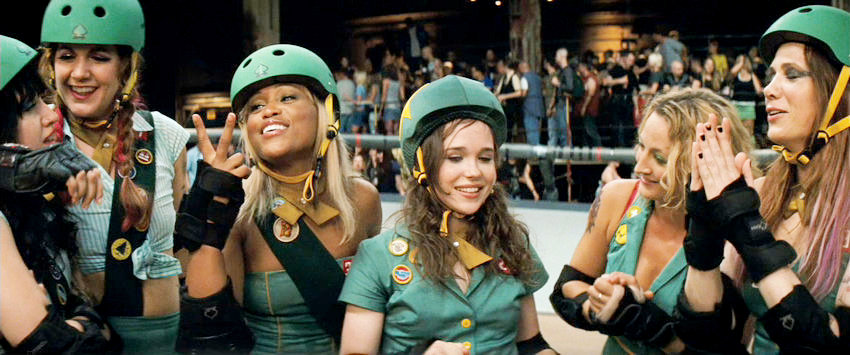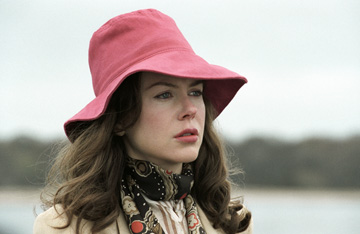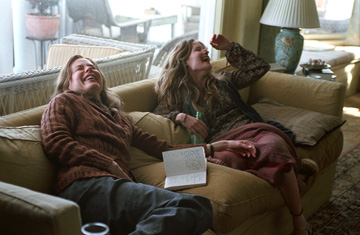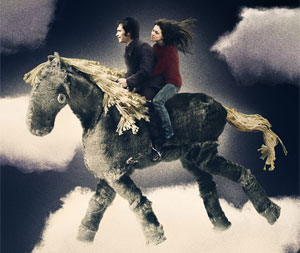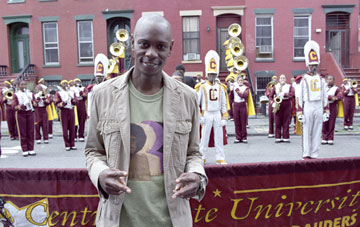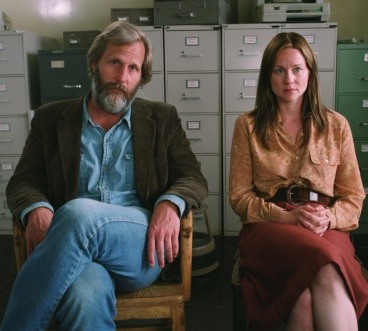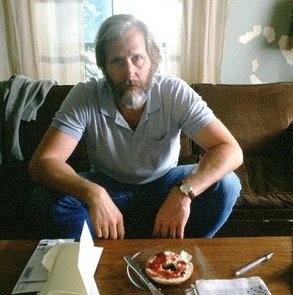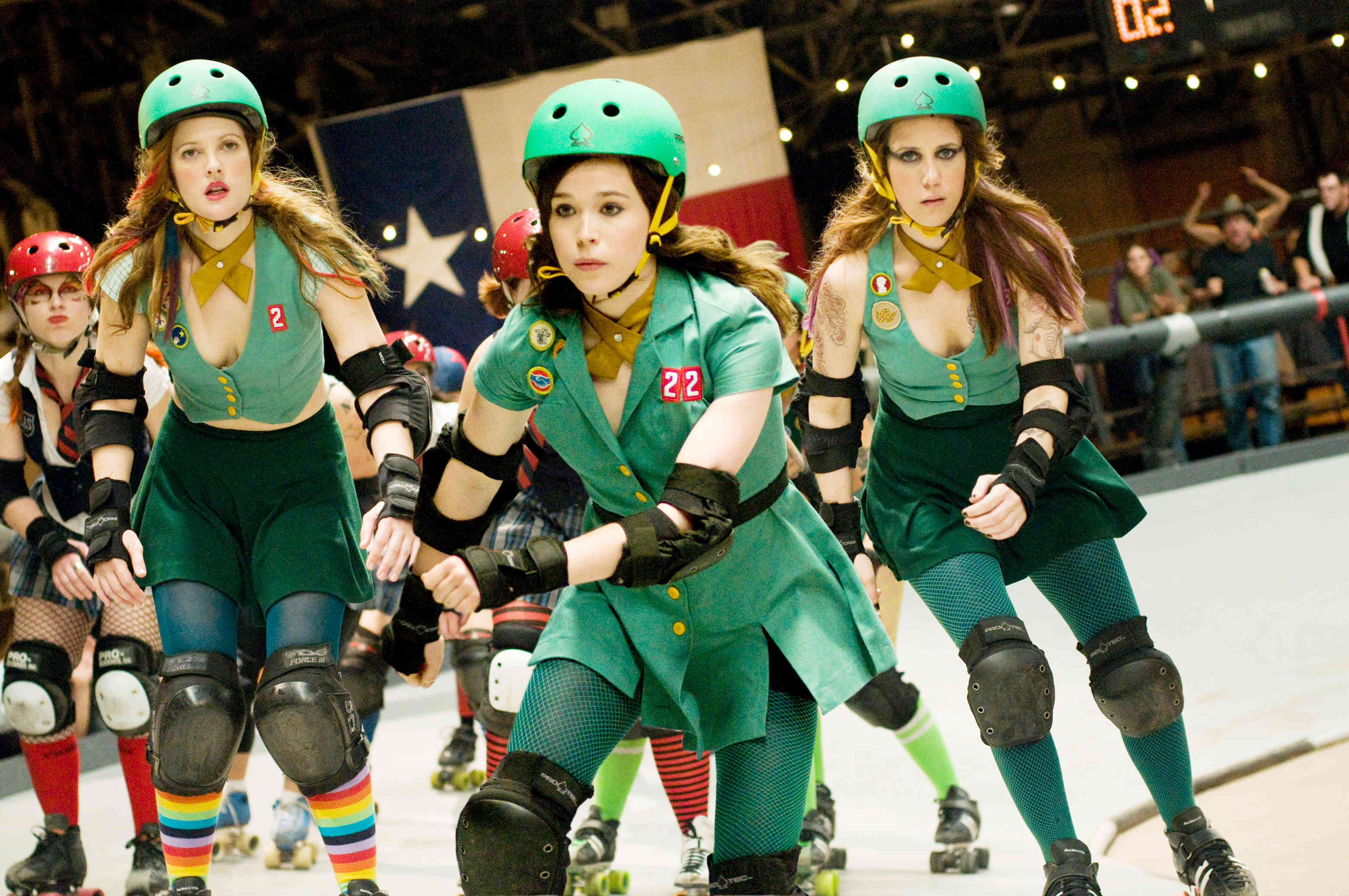
As the film begins, the surly teen in question, a young Texan by the name of Bliss (Page), has just let down Ma once again, by dying her hair blue before the latest stereotypically stifling beauty pageant. (Page didn’t bug me so much in Juno — I blamed the excessive quirk then on screenwriter Diablo Cody. But, for some reason or another, I found her “who-me?” simper and hipster-schtick irritating pretty quickly in this film.) Anyway, Ma (Harden), a postal worker with her own beauty-queen dreams deferred, takes the blue-hair fiasco as well as she can, but it doesn’t change the fundamental problem for Bliss. She — and her best friend Pash (Alia Shawkat, a.k.a. Maeby Fünke) — are just dying in this one-horse town.
But, on a trip to nearby Austin one day, Bliss finds a D.I.Y.-looking flyer advertising the local roller-derby league, featuring the current reigning rinkstress, Iron Maven, in all her glory. (That would be Juliette Lewis, doing her standard queen-of-the-skanks routine. Weirdly enough, Woody Harrelson brought back Mickey Knox just the week before, and now Lewis is channeling Mallorie again.) Anyway, after a visit to the Big Dance, Bliss is completely smitten with this strange new world of bad-ass chicks and furious body blows. Even better, there’s a spot open on the “Hurl Scouts” — who consist of Maggie Mayhem (Kristen Wiig), Rosa Sparks (Eve), Bloody Holly (Zoё Bell) and Smashly Simpson (Barrymore) — and Bliss just happens to be lightnin’-fast in her old-school Barbie skates. But, even as Bliss grows to relish her new role as “Babe Ruthless,” there’re still the dreams of dear old Ma to contend with…
Although not as surprisingly promising as Ben Affleck’s 2007 directorial debut, Gone Baby Gone, Drew Barrymore acquits herself pretty well here behind the camera, all in all. Things move at a pretty brisk clip, and I could generally follow the roller derby scenes pretty well. (It may be the writer or the source material’s fault, but there are definite shades of the Drew Barrymore-produced Donnie Darko here too — in the “Sparkle Motion”-like little sister (Eulala Grace Scheel), the goofball dad (Daniel Stern), and the dysfunctional-yet-oddly-functional parents.)
That being said, there are a few problems here. I went on in my World’s Greatest Dad review recently about the “Big Lie,” usually seen in rom-coms, whereby the audience spends most of the film just waiting for some obvious problem to [a] be revealed and [b] then resolve itself. Well, this movie is based on two of ’em — Bliss is underage for the league, and the aforementioned mother-daughter dispute — and waiting for these cycles to play out frankly isn’t all that interesting. Throw in the usual set of standard-issue sports-movie tropes — the rookie-makes-good sequence, the “getting stronger!” montage, the Big Game — and Whip It is basically cliché grafted to cliché.
All that being said, I still could have cottoned to Whip It more, I think — it has its heart in the right place — if it weren’t one of those movies that plays an arch indie song every time you’re supposed to have any sort of emotional reaction to it. (And don’t get me started on the subplot involving Bliss’ potential emo-rocker boyfriend (Landon Pigg) — That guy just drove me up the wall from Jump Street.) Let me put it this way: Throughout the movie, Bliss tends to wear a Stryper T-shirt, as in the ultra-cheesy Christian metal band from the 80’s. (It becomes a plot point, eventually.) Now, some might see this as a very post-ironic, clever, hipster thing to do. Others might say it seems like trying too hard.
